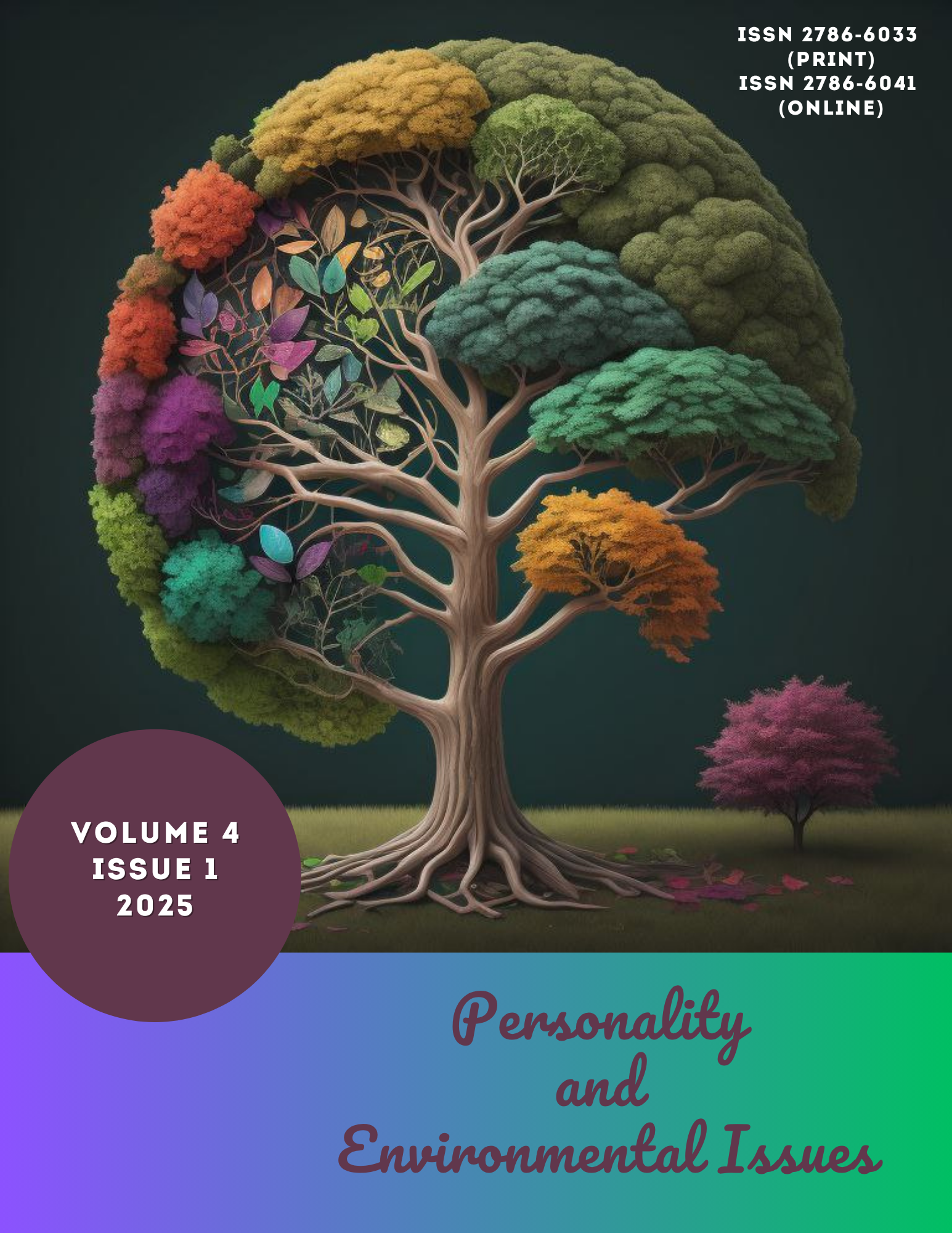Abstract
The article presents the analysis and interpretation of the results of an empirical study of the substantive components of the self-concept of individuals with incest trauma. In accordance with the stated goal of the study, the tasks of the work were: operationalization of the substantive components of the self-concept and interpretation of empirical indicators in the structure of the personality with incest trauma. To achieve the stated goals, a battery of psychodiagnostic methods was used: “Young schema Questionanire (YSQ-3)” (J. Yang), “Impact of Even Scale – Reviser (IES-R)” (D. Weiss, Ch. Marmar), “Scale of Incestuous Personality” (M. Dushkevych, M. Hlushchenko). The sample of the ascertaining experiment consisted of 173 individuals (of which 61 individuals who had experienced incest trauma and 112 individuals from the control group). The average age of the total sample was 32 years. Statistical processing of the results was carried out using the nonparametric Mann-Whitney U-test and one-way variance ANOVA analysis with subsequent interpretation of empirical components. The empirical study presented an idea of the phenomenology of the traumatic experience of incest in the structure of the self-concept of the individual. Based on the data obtained and comparative statistical procedures, it was analyzed that the manifestation of self-awareness of individuals with incest trauma unfolds around the constructive and destructive profile of the self-concept. It was established that the level of manifestation of indicators of the integrative nature of the traumatic event, the activation of dysfunctional cognitive schemes and the level of incestuousness is statistically higher among individuals with incest trauma in the group with a destructive rather than a constructive profile. It was found that the activation of the intrusion of traumatic memories complicates the mental state of the individual, forming a complex system of negative self-perception and emotional distress. The self-concept of individuals with incest trauma in a destructive profile is accompanied by the perception of their own defectiveness, excessive or insufficient sensitivity in the mental and physical spheres, a specific attitude towards sex, emotional derivation, and difficulties in interpersonal relationships. It is emphasized that understanding the self-concept allows for the identification of effective strategies for psychological support and psychosocial assistance at different (especially crisis) stages of ontogenesis in order to form a positive self-concept. The practical significance of the results lies in the possibility of their use by psychologists and psychotherapists to provide psychological support and assistance to individuals who have suffered incest trauma.
References
Channer, K., & Jobson, L. (2018). Self-Complexity and Perceived Self-Aspect Control in Post-Traumatic Stress Disorder. Behavioural and Cognitive Psychotherapy, 46(1), 50–65. doi:10.1017/S1352465817000431
Cramer, A.O.J., van Ravenzwaaij, D., Matzke, D. et al (2016). Hidden multiplicity in exploratory multiway ANOVA: Prevalence and remedies. Psychon Bull Rev 23, 640–647 https://doi.org/10.3758/s13423-015-0913-5
Darves-Bornoz, JM., Berger, C., Degiovanni, A. et al. (1999) Similarities and Differences Between Incestuous and Nonincestuous Rape in a French Follow-Up Study. J Trauma Stress 12, 613–623. https://doi.org/10.1023/A:1024713017052
Dudnyk, O. (2022) Bezporadnist u strukturi ya-kontseptsii osobystosti [Helplessness in Self-concept structure of a personality]: monohrafiia Kyiv: Vyd-vo «SBA Print» 213. [in Ukrainian].
Dushkevych, M., & Hlushchenko, M. (2021). Rozrobka, aprobatsiia ta standartyzatsiia opytuvalnyka «Shkala intsestuoznosti osobystosti» [Development, approbation and standardization of “Scale of incestuous personality” questionnaire]. Psykholohichnyi chasopys - Psychological Journal, 7(1), 108–127. https://doi.org/10.31108/1.2021.1.9 [in Ukrainian].
Hoshovskyi, Ya. (2014) Adaptatsiino-samoaktualizatsiinyi potentsial u protsesi revitalizatsii depryvovanoi osobystosti [Adaptation and actualization of itself potential in the process of revitalization of deprived personality]. Aktualni problemy psykholohii: zbirnyk naukovykh prats Instytutu psykholohii imeni H.S. Kostiuka NAPN Ukrainy. – Tom Kh. Psykholohiia navchannia. Henetychna psykholohiia. Medychna psykholohiia. Vyp.26. 249-258. [in Ukrainian].
Katolyk, H. & Kysil, Z. (2019). Hlobalizatsiia i natsiia: psykhoterapevtychnyi pohliad na ya-kontseptsiiu suchasnyka (na osnovi analizu psykhoterapevtychnykh keisiv) [Globalization and nation: psychotherapeutic view at the contemporary’s Self-concept (based on analysis of psychotherapeutic cases]. Psykholohiia i osobystist, (2), 203–224. https://doi.org/10.33989/2226-4078.2019.2.177357 [in Ukrainian].
Krupelnytska, L., Yatsenko, N, Keller, V. and Morozova-Larina.(2024) The Impact of Events Scale-Revised (IES-R): Validation of the Ukrainian Version. Available at SSRN. http://dx.doi.org/10.2139/ssrn.4732826
Muldoon, O.T., Nightingale A., McMahon, G., Griffin, S., Bradshaw, D., Lowe, R.D., & McLaughlin, K. (2024). Child sexual abuse and social identity loss: A qualitative analysis of survivors' public accounts. British Journal of Social Psychology, 63 (4), 1757-1770. https://doi.org/10.1111/bjso.12752
Rakhmasari, V. P., Nashori, F., & Kurniawan, Y. (2021). Trauma-Focused Cognitive Behavioral Therapy to reduce symptoms of post-traumatic stress disorder in adolescent victims of incest. Psikohumaniora: Jurnal Penelitian Psikologi, 6(2), 187–198. https://doi.org/10.21580/pjpp.v6i2.8242
Sardarzadeh, S. (2018). Reliability and Validity of the Ukrainian Version of the Young Schema Questionnaire - Short Form 3 (YSQ-S3). Advances in Sciences and Humanities, 4(4), 56-61. https://doi.org/10.11648/j.ash.20180404.11
Tytarenko, T. (2020) Posttravmatychne zhyttietvorennia: sposoby dosiahnennia psykholohichnoho blahopoluchchia [Post-Traumatic Life Creation: Partways to Achiving Psychological Well-Being] monohrafiia. Natsionalna akademiia pedahohichnykh nauk Ukrainy, Instytut sotsialnoi ta politychnoi psykholohii. Kropyvnytskyi : Imeks-LTD, 160.
Yatsenko, V., & Darvishov, N. (2023). Posttraumatic growth from the perspective of narrative approach to the study of personality. Bulletin of Taras Shevchenko National University of Kyiv. Psychology, 1(17), 96–100. https://doi.org/10.17721/BPSY.2023.1(17).14

This work is licensed under a Creative Commons Attribution 4.0 International License.
Copyright (c) 2025 Микита Глущенко





